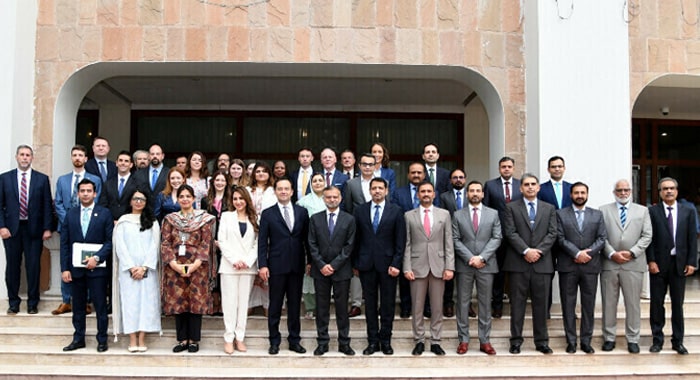The United States has reaffirmed its commitment to work with Pakistan to eradicate all forms of terrorism, a declaration that comes amid rapidly improving relations between the two countries. The statement followed Washington’s decision to add the banned Baloch Liberation Army (BLA) and its sub-group, the Majeed Brigade, to its list of Foreign Terrorist Organizations a move Pakistan had long sought. The US said the designation reflects its determination to combat terrorism and signals strengthened cooperation and international coordination in counterterrorism efforts.
In a message posted on social media platform X, the US Embassy in Islamabad stated that Acting Coordinator for Counterterrorism Gregory LoGerfo and Charge d’Affaires Natalie Baker participated in the Pakistan-US Counterterrorism Dialogue to advance the shared resolve to confront global threats. “We are committed to eliminating all forms of terrorism,” the embassy said.
According to the Ministry of Foreign Affairs, LoGerfo also met Deputy Prime Minister and Foreign Minister Ishaq Dar, briefing him on the discussions held during the dialogue. Dar encouraged sustained and structured bilateral engagement in the counterterrorism domain. The last Pakistan-US Counterterrorism Dialogue took place in May last year, when both countries reaffirmed their commitment to continue cooperation to promote regional and global peace and security.
The renewed engagement comes shortly after Chief of Army Staff Field Marshal Asim Munir concluded his second visit to the US in just six weeks. Referring to the trip as a “new chapter” in bilateral relations, the army chief had earlier undertaken a five-day official visit to the US in June, during which he met then US President Donald Trump over lunch. He is the first serving army chief to have met the incumbent US president in an official capacity.
During that meeting, the two leaders discussed joint counterterrorism efforts and expanding bilateral trade. President Trump commended “Pakistan’s ongoing efforts for regional peace and stability” and appreciated the strength of counterterrorism cooperation between the two sides.
Last month, Foreign Minister Dar met US Secretary of State Marco Rubio, marking the first meeting between the foreign ministers of both countries in three years. The talks covered trade, investment, counterterrorism cooperation, and the brief conflict between India and Pakistan in May. The meeting was described as a diplomatic breakthrough in Pakistan-US relations, with Secretary Rubio acknowledging Pakistan’s “unparalleled sacrifices” in the fight against terrorism and calling Islamabad a “constructive player” in regional stability.
In June, US Central Command (CENTCOM) Commander General Michael Kurilla hailed Pakistan as an “outstanding partner in counterterrorism” and praised its efforts against militant groups such as the BLA and ISIS-Khorasan.
Recent developments suggest that Islamabad and Washington are operating in a climate of growing alignment. Positive signals, first evident soon after President Trump assumed office, have increasingly translated into tangible diplomatic warmth.
From recognising Pakistan’s cooperation in the capture of an ISIS-K operative to crediting it with helping avert a potential nuclear conflict in South Asia, President Trump has mentioned Pakistan more prominently in routine media briefings than perhaps any of his predecessors.
With major concessions in tariff negotiations, growing interest from US investors in Pakistan’s oil and mineral sectors, and Islamabad’s signal that its currency market is open to digital assets and cryptocurrencies, Pakistan appears to be positioning itself as an active and decisive player in South Asia.





